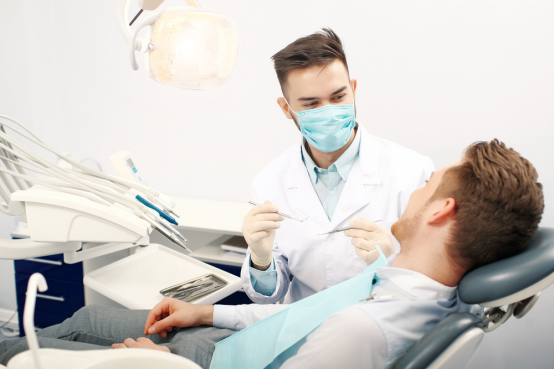Understanding Bleeding Gums: Causes, Prevention, and Treatment
Bleeding gums are a common issue that many people often overlook, assuming it’s a normal occurrence when brushing or flossing. However, bleeding gums should not be ignored as it can be a sign of underlying problems, such as gum disease. While mild cases of bleeding can sometimes be managed at home, it’s essential to consult a dentist for an accurate diagnosis and proper treatment if the bleeding persists.
Bleeding gums are a common issue that many people often overlook, assuming it’s a normal occurrence when brushing or flossing. However, bleeding gums should not be ignored as it can be a sign of underlying problems, such as gum disease. While mild cases of bleeding can sometimes be managed at home, it’s essential to consult a dentist for an accurate diagnosis and proper treatment if the bleeding persists.

What Are Bleeding Gums?
Bleeding gums are usually an early indication that something isn’t quite right with your oral health. Healthy gums do not bleed easily, and frequent bleeding could suggest gum disease. If left untreated, this could progress into more severe forms of gum disease, which can affect the teeth and overall oral health.
Common Causes of Bleeding Gums
The most common cause of bleeding gums is gum disease, also known as gingivitis. Plaque buildup on the gums leads to inflammation, which causes bleeding when brushing or flossing. Other factors that may contribute include:
- Poor oral hygiene practices
- Vitamin deficiencies, especially in vitamin C and vitamin K
- Smoking or chewing tobacco
- Hormonal changes
- Certain medications that affect gum health
How to Prevent Bleeding Gums
- Maintain Proper Oral Hygiene:
- Brush your teeth twice daily using a soft-bristled toothbrush. Avoid brushing too aggressively, as this can damage the gums.
- Floss gently every day to remove plaque and debris between the teeth.
- Use Mouthwash: Incorporating an antibacterial mouthwash into your routine can help reduce plaque buildup and fight bacteria.
- Dietary Considerations:
- Reduce sugary foods and drinks that promote bacterial growth in the mouth.
- Increase your intake of vitamin C (found in citrus fruits, bell peppers, etc.) and vitamin K (found in leafy greens) to help strengthen your gums.
- Quit Smoking: Smoking is known to damage gum tissue and promote gum disease.
- Regular Dental Check-Ups: Scheduling regular visits to your dentist can help catch gum problems early and prevent them from worsening.
When to See a Dentist
You should consult a dentist if:
- Bleeding becomes frequent or happens every time you brush or floss.
- The bleeding does not stop after a few minutes.
- You notice signs of gum disease, such as swollen, red, or receding gums.
Dental Treatments for Bleeding Gums
Your dentist will perform a thorough examination to determine the cause of the bleeding. Treatment options may include:
- Plaque Removal: The dentist may remove plaque and tartar buildup from the gums and teeth, which are often the primary cause of gum disease.
- Scaling and Root Planing: A deeper cleaning method that helps remove plaque and tartar below the gumline.
- Surgical Treatment: In more severe cases of gum disease, surgery may be necessary to restore gum health.
At-Home Remedies for Bleeding Gums
- Switch to a Softer Toothbrush: Replace your old toothbrush with a soft-bristled one to avoid irritating your gums.
- Brush Gently: Brush your teeth with soft strokes, and floss carefully to avoid damaging the gum tissue.
- Saltwater Rinse: Rinse your mouth with warm saltwater at least twice daily to help reduce inflammation and promote healing.
- Vitamin-Rich Diet: Include more vitamin-rich foods, such as citrus fruits, leafy greens, and peppers, to improve gum health.
- Hydrogen Peroxide: Rinse with a diluted hydrogen peroxide solution to disinfect the mouth and help stop gum bleeding.
- Cold Compress: Apply a cold compress to the affected area to reduce swelling and stop bleeding.
Conclusion
Bleeding gums can be a sign of an underlying oral health issue, often related to gum disease. Maintaining good oral hygiene, eating a balanced diet, and scheduling regular dental check-ups are essential in preventing and managing this condition. If bleeding gums persist, don’t hesitate to consult your dentist for a thorough evaluation and treatment plan.